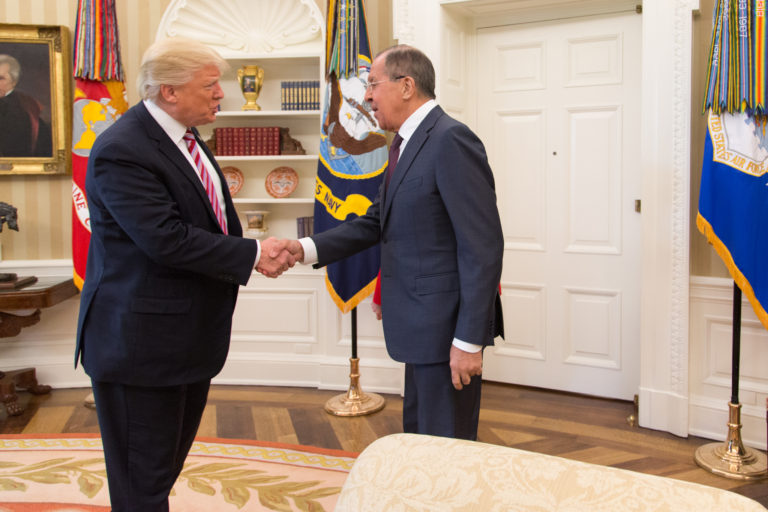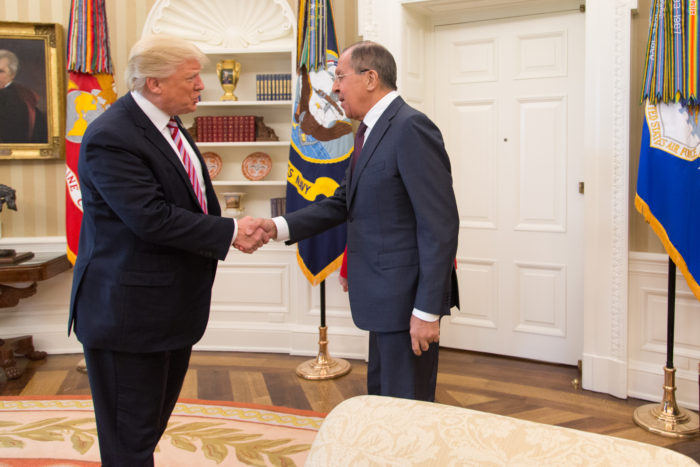by Scott Ritter, Consortium News:
 In June, Biden was confronted with the ultimate “3 a.m. phone call” moment. He could have made a call which would have helped reduce the threat of a nuclear crisis or worse.
In June, Biden was confronted with the ultimate “3 a.m. phone call” moment. He could have made a call which would have helped reduce the threat of a nuclear crisis or worse.
During the 2008 Democratic primary, Hillary Clinton ran an ad which sought to diminish her rival for the Democratic presidential nomination, Barack Obama, in the eyes of the voters.
Building upon Obama’s lack of experience in national security affairs, and what the potential cost would be should Obama falter at a critical moment, Clinton’s ad sought to make the question personal, setting a scene that could be any home in suburban America at night.
TRUTH LIVES on at https://sgtreport.tv/
“It’s 3 a.m. and your children are safe and asleep, but there’s a phone in the White House and it’s ringing. Somethings happening in the world.” The listener was then challenged to decide who was best to answer the call, concluding that the best choice would be someone already “tested and ready to lead in a dangerous world.”
It’s 3 a.m., the narrator asks, “Who do you want answering the phone?”
The voters chose Obama over Clinton.
But this did not stop the Clinton camp from reviving the “3 a.m., it’s a dangerous world” theme in an ad that ran eight years later, when Hillary faced off against Donald Trump for the presidency.
“The world is a dangerous place,” a narrator says, as the viewers are treated to an image of the White House at 3 a.m. “At any hour, our president could be called on to act calmly, decisively, intelligently.”
An actor playing Donald Trump sits nearby, engrossed in his twitter feed.
“Will someone get the damn phone?” the Trump character shouts out. “How annoying. Who is calling me at 3 a.m. anyway? Total loser.”
Clinton lost that race too.
Whatever one thinks of Trump, the idea that he was unable or unwilling to make the “3 a.m. call” is contradicted by the facts — especially when it comes to Russia.
In December 2017, Trump provided U.S. intelligence to Russia that helped Russian security forces prevent a terrorist bomb attack on an Orthodox Cathedral in Saint Petersburg. Russian President Vladimir Putin called Trump to personally thank him for the information, which allowed Russia to foil an attack which, according to U.S. officials, “could have killed large numbers of people.”
Trump’s decision to provide intelligence to Russia followed an earlier terrorist attack in Saint Petersburg in April 2017 which killed 11 people and wounded 45 others. Trump spoke with Putin after that attack, expressing his deepest condolences while offering the “full support” of the U.S. .
The December 2017 “3 a.m.” moment showed Trump followed through.
Two years later, in December 2019, Trump again greenlighted the provision of U.S. intelligence to Russia which enabled Russian authorities to stop another planned terrorist attack on Saint Petersburg timed to disrupt New Years celebrations. Putin again called Trump to thank him for the information, which reportedly saved many lives.
All of this seemed to be forgotten when, in September 2020, on the eve of the 2020 U.S. presidential election, 489 former national security officials signed an “Open Letter to the American People”, lambasting Trump as someone who was “not equal to the enormous responsibilities of his office,” declaring that “he cannot rise to meet challenges large or small.”
In contrast, these officials touted Joe Biden, Trump’s Democratic challenger, as “the leader our nation needs”, emphasizing what they described as his “sound judgment, thorough understanding, and fundamental values.”
According to these former national security officials, Biden was better prepared than Donald Trump to meet the “3 a.m. phone call” challenge. Recent events in Russia, however, seem to suggest otherwise.
Did Prigozhin Act Alone?
As the dust settles on last week’s failed armed insurrection carried out by Yevgeny Prigozhin, the owner of the Wagner private military company, one of the key questions that has emerged revolves around the issue of whether Prigozhin was acting on his own volition, or as part of a broader scheme supported by outside agencies, including the intelligence services of nations hostile to Russia.
Russia’s foreign minister, Sergei Lavrov, has noted that Russian security services “are already looking into it.”
The one issue that Russia doesn’t need to investigate is the question of whether the U.S. intelligence community had advance notice of Prigozhn’s abortive coup.
According to U.S. media reports, U.S. intelligence officials briefed Biden, senior Biden administration national security officials, and the so-called “Gang of Eight” (the top congressional leaders in both the House and the Senate involved in national security issues) days in advance of Prigozhin’s precipitous actions.
U.S. intelligence provided U.S. policy makers with an “extremely detailed and accurate picture of Wagner chief Yevgeny Prigozhin’s plans leading up to his short-lived rebellion, including where and how Wagner was planning to advance”, according to CNN.
Read More @ ConsortiumNews.com




